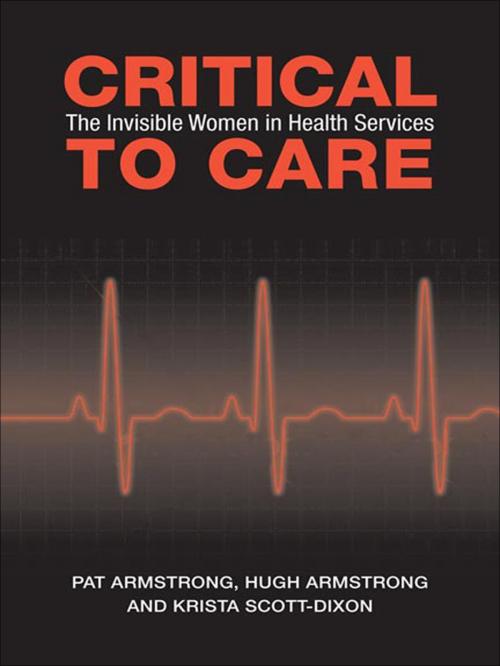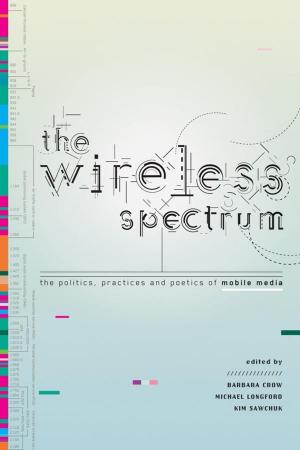Critical To Care
The Invisible Women in Health Services
Nonfiction, Health & Well Being, Medical, Patient Care, Health Care Delivery| Author: | Pat Armstrong, Hugh Armstrong, Krista Scott-Dixon | ISBN: | 9781442691964 |
| Publisher: | University of Toronto Press, Scholarly Publishing Division | Publication: | June 14, 2008 |
| Imprint: | Language: | English |
| Author: | Pat Armstrong, Hugh Armstrong, Krista Scott-Dixon |
| ISBN: | 9781442691964 |
| Publisher: | University of Toronto Press, Scholarly Publishing Division |
| Publication: | June 14, 2008 |
| Imprint: | |
| Language: | English |
Who counts as a health care worker? The question of where we draw the line between health care workers and non-health care workers is not merely a matter of academic nicety or a debate without consequences for care. It is a central issue for policy development because the definition often results in a division among workers in ways that undermine care.
Critical to Care uses a wide range of evidence to reveal the contributions that those who provide personal care, who cook, clean, keep records, and do laundry make to health services. As a result of current reforms, these workers are increasingly treated as peripheral even though the research on what determines health demonstrates that their work is essential. The authors stress the invisibility and undervaluing of 'women's work' as well as the importance of context in understanding how this work is defined and treated.
Through a gendered analysis, Critical to Care establishes a basis for discussing research, policy, and other actions in relation to the work of thousands of marginalized women and men every day.
Who counts as a health care worker? The question of where we draw the line between health care workers and non-health care workers is not merely a matter of academic nicety or a debate without consequences for care. It is a central issue for policy development because the definition often results in a division among workers in ways that undermine care.
Critical to Care uses a wide range of evidence to reveal the contributions that those who provide personal care, who cook, clean, keep records, and do laundry make to health services. As a result of current reforms, these workers are increasingly treated as peripheral even though the research on what determines health demonstrates that their work is essential. The authors stress the invisibility and undervaluing of 'women's work' as well as the importance of context in understanding how this work is defined and treated.
Through a gendered analysis, Critical to Care establishes a basis for discussing research, policy, and other actions in relation to the work of thousands of marginalized women and men every day.















